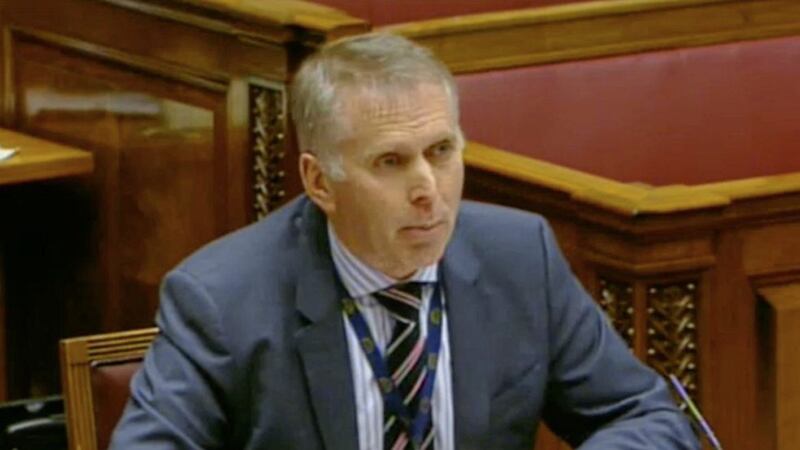A LONG period without government will leave the north facing serious financial difficulties, a senior civil servant has said.
David Sterling, permanent secretary at the Department of Finance, issued the warning ahead of the announcement of an assembly election on March 2.
The poll is not expected to ease a bitter dispute between Sinn Féin and the DUP and if the parties again emerge as the two largest at Stormont, an immediate return to power-sharing is unlikely.
A talks process would likely be required, raising the spectre of devolution being suspended and direct rule from Westminster being reintroduced.
The collapse of the Executive has torpedoed the process of agreeing a budget for the next financial year.
Without a budget or ministers, civil servants would take control of the purse strings, but would be limited in the money they can spend.
Giving evidence to the assembly's finance committee yesterday, Mr Sterling said: "A long period without a government would be difficult for us to manage.
"Our objective as civil servants would be to ensure minimal disruption... but I wouldn't want to downplay the difficulties. It will be difficult. I am hopeful it will be as short as possible an interruption to government."
Stormont's failure to agree a budget for 2017/18 will also have a knock-on effect on rates bills.
Contingency plans are being drawn up for this year's bills, with the political crisis meaning that the the collection of £1.2bn in revenue will be delayed.
It is likely more than 500,000 household and business bills will not be issued on time in April but may be sent out by June at the latest.
Direct debit payments will not be taken until after bills have been posted.
It remains unclear how the collapse of Stormont will affect major infrastructure projects.
The A6 road scheme is already subject to a legal challenge, although it may still go ahead if this is resolved.
Infrastructure minister Chris Hazzard last night said the Narrow Water Bridge could be built in 2019 subject to funding, and work to restore the remaining section of the Ulster Canal could also begin that year.
Meanwhile, the lack of a budget may also affect abuse victims. The Historical Institutional Abuse Inquiry is to publish its long-awaited report on Friday and victims - many of them elderly - will be hoping that it will recommend some form of compensation.
They have expressed fears that the absence of devolved government will delay any pay-outs.








